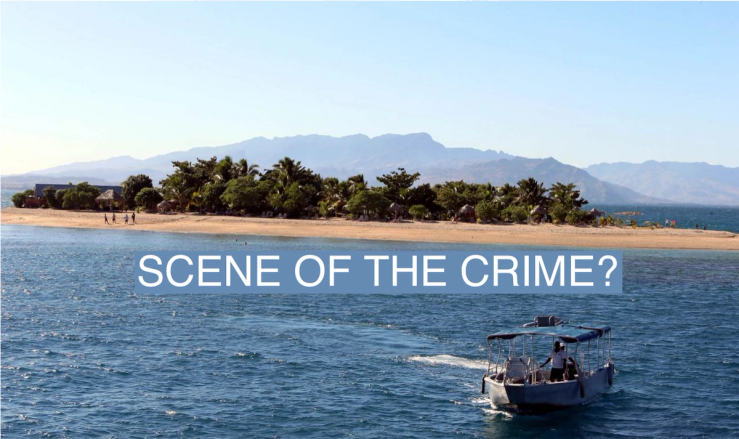The News
China is accusing the U.S. of effectively kidnapping two of its citizens whom American authorities suspected of drug trafficking, the latest development in the escalating row between the countries over the narcotics trade that’s playing out globally.
In late June, the U.S. Department of Justice announced that it had indicted two Chinese nationals for dealing the precursor chemicals used to make fentanyl after conducting an undercover sting operation. The pair was apprehended in Fiji, American officials said, and then extradited to Hawaii.
Chinese officials tell Semafor they have now sent a formal diplomatic complaint to the U.S., charging that the Biden administration conducted an illegal rendition by spiriting the suspects away from Fiji in an American plane before they could get access to Chinese consular officials or lawyers.
The two suspects are currently being held in New York where they’re awaiting federal trial for narcotics trafficking. Beijing has asked that they be sent back to China.
Beijing reacted angrily to the news of the arrests in June. But neither Chinese nor U.S. officials have previously suggested that a U.S. plane was used in a rendition.
“This is typical arbitrary detention and unilateral sanction, which is completely illegal,” China’s Foreign Ministry spokesman said in a statement released at the time. “It seriously harms the basic human rights of the Chinese nationals and the interests of the Chinese companies concerned.”
The View From Foggy Bottom
The Biden administration last month praised the arrests, and the indictments of Chinese chemicals companies, as the first prosecutions of Chinese individuals and entities related to the trafficking of fentanyl directly into the United States. The Drug Enforcement Administration said it seized more than 200 kilograms of fentanyl-related precursor chemicals through the operation, which also included Fiji’s and Thailand’s law enforcment.
Asked how it was responding to China’s complaints, a State Department spokesman told Semafor that the administration had “made very clear to the PRC that we are open to resuming cooperation on dealing with synthetic opioids and fentanyl, including by exploring setting up a working group or joint effort so that we can shut off the flow of precursor chemicals which help fuel this crisis.”
Jay’s view
The U.S. counter-narcotics operation in Fiji, and China’s response, illustrates how tensions between the countries remain high, despite stepped-up diplomatic engagement between Washington and Beijing in recent weeks.
The Biden administration is making cooperation in combating fentanyl trafficking among the top issues it raises with China, according to U.S. and Chinese officials. Secretary of State Antony Blinken and his Chinese counterparts discussed it last month in Beijing, and both sides agreed to pursue the establishment of this working group on counter-narcotics.
But Chinese officials say Beijing is maintaining its position that such cooperation depends on Washington lifting economic sanctions on two Chinese law enforcement institutions — something the State Department is considering.
The View From Fiji
One interesting subplot in this fight is how it’s thrusting Fiji’s government into the center of U.S.-China tensions. The country’s prime minister, Sitiveni Rabuka, took office in December and has aggressively moved to distance his country from Beijing, and both the U.S. and China have sought to cultivate influence among the Pacific’s small island nations.
In April, he snubbed a senior Chinese diplomat visiting Suva, citing the need to attend a family funeral. Last month, he told New Zealand’s leadership that he was considering ending Fiji’s 2013 policing agreement with China that allows for Chinese police officers to be stationed in the country.
Rabuka has also raised the prospect of formally recognizing Taiwan, and his government is prosecuting on corruption charges Fiji’s former prime minister and police commissioner, both of whom pressed for closer ties with China.
Last week, the Fijian leader, in a bizarre social media post, said he was postponing his July visit to China due to what he said was a cut he sustained on his head after falling down the stairs while looking at his cell phone.
The Justice Department publicly praised Fiji’s law enforcement agencies last month for their role in the counter-narcotics operation. Their close cooperation with the U.S. is seen by Asia analysts as another step by Rabuka to move closer to Washington, and could explain why he publicly snubbed China a second time.
Notable
- China’s ambassador to Fiji in January lauded the country as a key partner in the Belt and Road and Global Development Initiatives.


